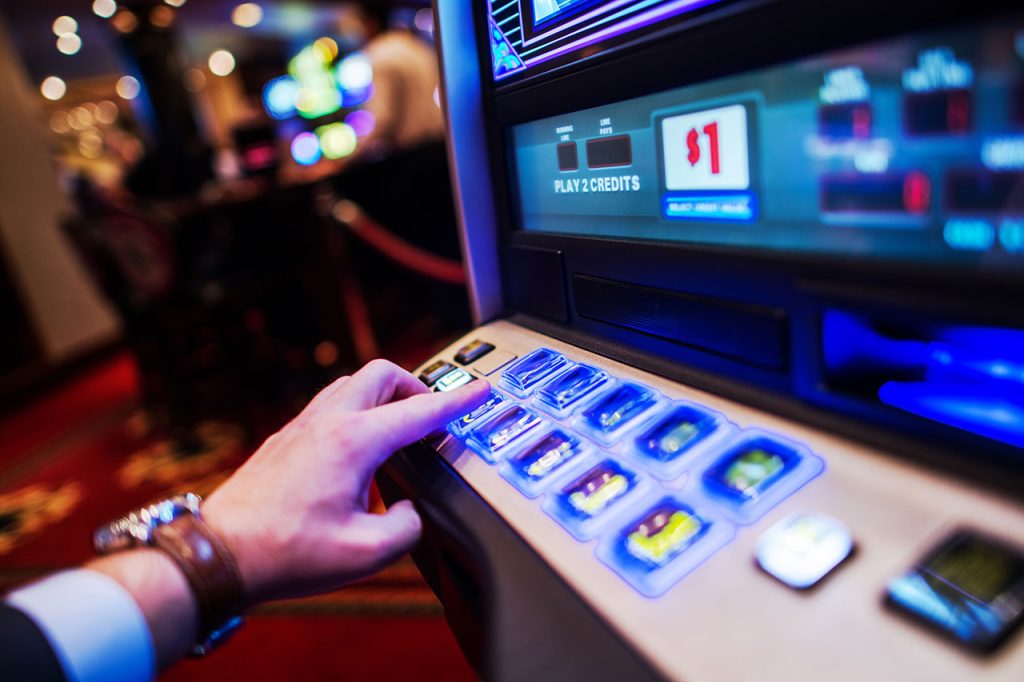Are you one of those slot players who find themselves mesmerized by the dazzling lights and thrilling jingles that are popular around the slot machine? If yes, then understanding slot machine odds and payouts is even more important for you.
This is because the understanding can significantly impact your slot strategy. In the following sections, we will go through some basic facts you need to know to figure out the technicalities of slot machine odds and how they affect your wins.
The Allure of Slot Machines
Slot machines have always been popular. This is because they remain the heart of casino entertainment. In fact, they were there long before some of the other games were even introduced.
Their undeniable allure exists in their simplicity. All you need to do is to insert a coin and press a button to play. With online slots, you just need to connect your card and keep playing without lifting a finger. However, beneath this apparent simplicity lies a world of complex mathematics and probabilities.
The Random Number Generator (RNG)
Before going on to discussing slot machine odds, let’s discuss the random number generator. This is something that forms the foundation of a slot machine and determines the random spins. Understanding this is the first step to figuring out slot machine odds.
The random number generator generates thousands of numbers per second, even when the machine is not being used. Each time you press the spin button or pull a lever on the machine, the RNG is going to stop at a specific moment. This will eventually determine the outcome of the spin. However, this is a fast transition and might not be noticeable to you.
Paylines and Symbols
If you want to understand how the odds work in slots, you must also start by figuring out the concept of paylines and symbols. Slot machines typically feature more than one payline, which forms the basis of the winning combinations that might appear. Symbols are the images that fill the reels, and each symbol is associated with a certain value.
The number of paylines and the arrangement of symbols vary depending on the machine, making each game unique. Some slots have just a single payline, while others boast hundreds, providing players with a wide range of betting options.
Calculating Slot Machine Odds
Let’s get technical for a bit. The odds of winning when you are playing a slot machine will eventually depend on a combination of several factors. These include the number of reels, symbols on each reel, and the specific arrangement of those symbols on the paylines. Here’s how it might look;
- Reels and Symbols: A typical slot machine has three to five reels, each containing various symbols. The number of symbols on each reel directly affects the odds of winning. More symbols mean more potential combinations.
- Paylines: The number of paylines also plays a crucial role. More paylines increase the chances of winning, but they also require larger bets. Some slots offer fixed paylines, while others allow players to choose how many to activate.
- Payouts: The value of symbols and the payout structure of the game influence the odds. Symbols with higher values result in bigger wins. Additionally, some games feature progressive jackpots, where the odds of getting a large jackpot are much lower but offer substantial rewards.
Slot Volatility
Slot volatility is important to consider when you are determining slot machine odds. Slot machines are usually divided based on two main categories;
- Low Volatility Slots: These games offer frequent but smaller wins. The odds of hitting winning combinations are higher, making them suitable for slot players who prefer a steady stream of payouts.
- High Volatility Slots: In contrast, high volatility slots provide less frequent wins but with larger payouts. The odds of getting a massive jackpot are quite low, but the rewards can be substantial.
When you are trying to develop a slot strategy, it is important to understand the volatility of a slot machine. Low volatility slots can help you save some of your bankroll. However, if you are looking for a challenge, it is important to consider high-volatility slots.
Return to Player (RTP)
Slot machine odds are also influenced by a metric known as Return to Player (RTP). RTP is expressed as a percentage and represents the portion of all wagers slot machines will pay back to players over time.
Consider your slot machine has a return to player of 95%. This means that for every $100 wagered, the machine will pay back $95 to players as winnings. The remaining $5 represents the house edge.
The House Edge
Slot machines are designed with a built-in advantage for the casino, known as the house edge. The house edge is the difference between the RTP and 100%. In the case of our example with a 95% RTP, the house edge is 5%.
It’s crucial to understand that the house edge doesn’t apply to individual players. Some players may experience significant wins, while others may face losses. Over time, however, the house edge ensures that the casino earns a profit.
Strategies for Slot Players
Given the random nature of slot machines, it might seem that there’s little room for strategy. While you can’t control the outcome of each spin, you can adopt some strategies to enhance your slot-playing experience;
- Bankroll Management: Set a budget and avoid trailing away from it, especially to chase losses.
- Choose the Right Slot: Consider your preferences regarding volatility and choose a slot machine that matches your playing style.
- Use Bonuses and Promotions: Take advantage of casino bonuses and promotions to extend your playtime and increase your odds of winning.
- Play for Fun: Remember that slots are primarily a form of entertainment. Enjoy the game for its excitement and thrill rather than solely focusing on winning.

Final Thoughts
Unlocking the secrets of slot machine odds can help you approach these mesmerizing games with a more informed perspective. While the outcome of each spin remains uncertain, understanding the role of the RNG, paylines, symbols, and volatility can enhance your slot’s strategy.
Keep in mind that slots are ultimately about entertainment. Whether you prefer low or high-volatility slots, the rush of anticipation with each spin is what draws slot players to these games. So, the next time you find yourself at a slot machine, you can appreciate the intricate mathematics behind those flashing lights and spinning reels, all while hoping for that elusive jackpot.


Leave a Reply